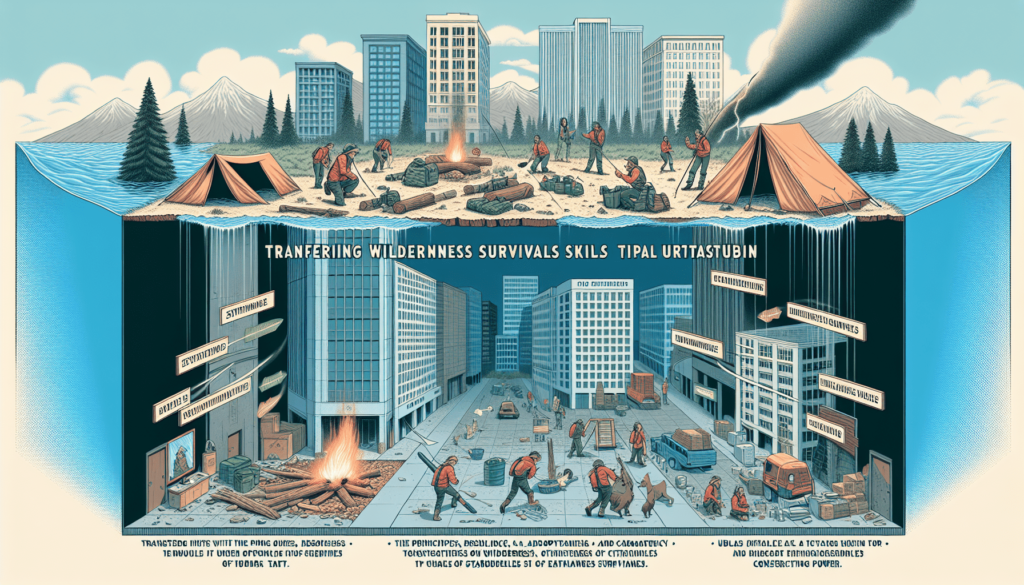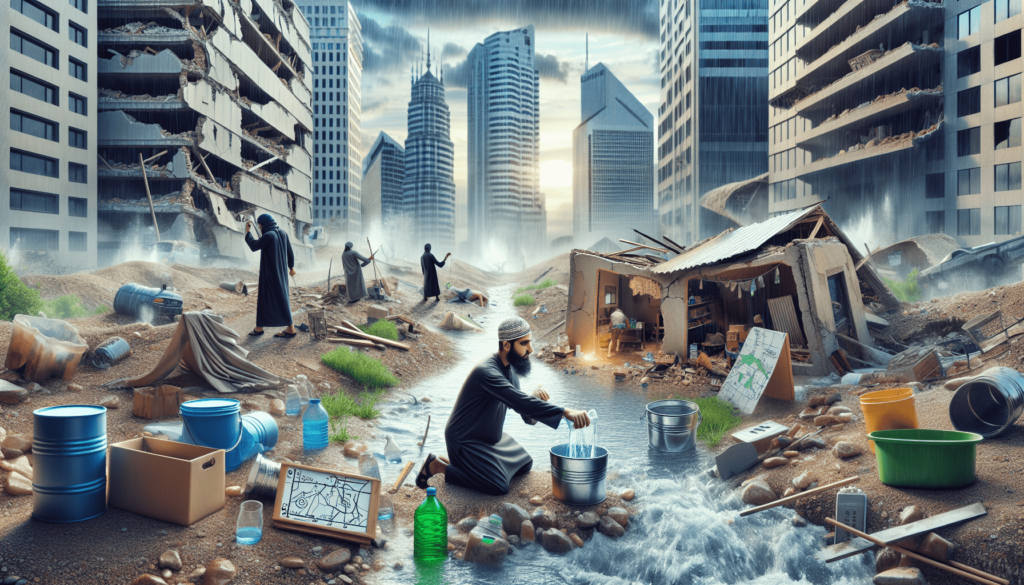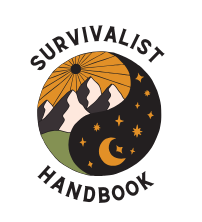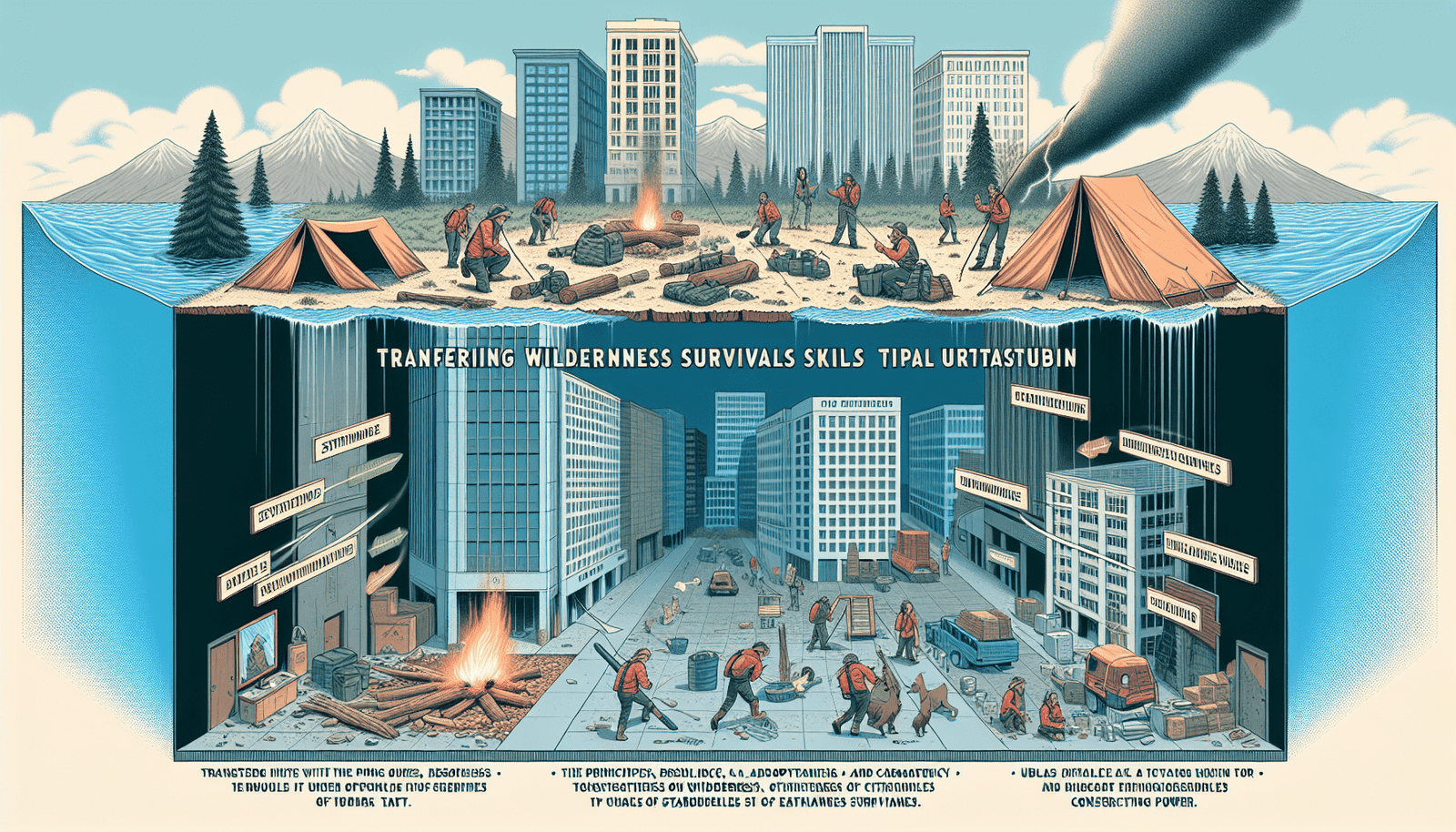Are you prepared to handle a disaster in the city? While wilderness survival skills may seem irrelevant in an urban setting, they can actually be the key to your survival. In my blog, “The Survivalist Handbook,” I aim to equip you with the knowledge and techniques needed to not only thrive in the wilderness but also to adapt those skills to urban environments. From finding shelter and clean water to navigating through crowded streets and dealing with limited resources, my comprehensive collection of articles in the “Urban Survival” category will empower you to handle any disaster that may come your way. So, get ready to adapt your wilderness skills and master the art of urban survival!

Understanding Urban Survival
In the world of survival skills, there are two main categories: wilderness survival and urban survival. While the principles of survival remain the same, there are significant differences between the two. Understanding these differences is crucial for anyone looking to navigate an urban environment during a disaster or emergency.
Differences between wilderness survival and urban survival
Wilderness survival typically involves being stranded in a remote location with limited access to resources. In this scenario, the primary focus is on finding food, water, shelter, and navigating through unfamiliar terrain. Urban survival, on the other hand, requires adapting those basic survival skills to a city setting, where resources may be more scarce and the environment is vastly different.
Importance of adapting wilderness skills to urban environments
Knowing how to survive in the wilderness is undoubtedly valuable, but urban survival skills are equally important. Cities are complex and crowded, and disasters in urban areas can present unique challenges. Adapting wilderness skills to urban environments enables you to maximize your chances of survival and navigate through the chaotic situations that often arise during urban disasters.
Assessing Urban Survival Needs
Before diving into the specifics of urban survival skills, it is essential to assess the potential disaster scenarios specific to urban environments. By understanding the threats you may face in a city, you can better prepare yourself for any situation that may arise.
Identifying potential disaster scenarios in the city
Disasters in urban areas may take various forms, including natural disasters like earthquakes, hurricanes, or floods, as well as human-caused emergencies such as terrorist attacks or civil unrest. Understanding the types of disasters that could occur in your city will help you tailor your preparation efforts accordingly.
Determining common urban survival needs
While the specific needs of individuals during a disaster can vary, there are some common survival needs that most people will face. These include access to clean water, food, shelter, and medical assistance. By understanding these basic needs, you can prioritize your preparations and ensure that you are adequately equipped to meet them.
Urban Survival Skills
When it comes to surviving in an urban environment, several key skills can greatly increase your chances of making it through a disaster situation. These skills are essential for navigating the city, finding necessary resources, and ensuring your safety and well-being.
Locating and purifying water sources
Access to clean drinking water is crucial for survival in any situation, and urban environments present unique challenges for finding and purifying water. Knowing how to identify potential water sources and purify them to make them safe for consumption is a vital skill in urban survival.
Finding food in urban environments
During a disaster, access to food may become limited. However, cities offer various opportunities for finding sustenance even in chaotic situations. Knowing where to look for food sources and how to gather and prepare them safely is key to urban survival.
Building a makeshift shelter
While urban areas may lack traditional wilderness shelters like caves or forests, there are still ways to create temporary shelters using the resources available. Learning how to construct a makeshift shelter to protect yourself from the elements and provide a safe resting place is an essential urban survival skill.
Navigating through urban landscapes
Cities can be complex and confusing, especially during an emergency. Being able to navigate through the urban landscape is crucial for reaching safety or finding necessary resources. Understanding landmarks, utilizing maps or GPS, and being aware of potential obstacles are all important aspects of urban navigation.
Basic first aid in urban settings
In an urban disaster, medical assistance may be limited or unavailable. Knowing how to administer basic first aid can mean the difference between life and death for yourself or others. Learning basic first aid skills specific to urban settings, such as treating gunshot wounds or broken bones, is critical.
Adapting Wilderness Skills to Urban Survival
While wilderness skills form the foundation of survival knowledge, it is essential to adapt and modify these skills to fit the unique challenges of urban survival. Here are some ways to apply wilderness skills in an urban environment.
Modifying fire-building techniques for urban environments
In a city, building a fire using traditional wilderness techniques may not always be a viable option. However, understanding alternative methods for creating fire in urban environments, such as using flint and steel or utilizing existing infrastructure, can be crucial for cooking food, purifying water, and providing warmth and comfort.
Creating improvised tools and equipment
In an urban disaster, access to tools and equipment may be limited. Learning how to improvise and create necessary tools from the items available in your surroundings is an important skill. This may include fashioning a makeshift knife or building a simple alarm system for protection.
Utilizing urban structures for shelter and safety
Cities are filled with structures that can be repurposed for shelter and safety during a disaster. Understanding how to utilize these structures, such as abandoned buildings or parking garages, can provide temporary refuge and protection from the elements or potential dangers.
Identifying edible urban plants and wildlife
While the concrete jungle may not seem like a place for foraging, there are still edible plants and wildlife that can be found in urban areas. Knowing how to identify these food sources and safely consume them can be a valuable skill for urban survival.
Applying wilderness navigation skills in the city
Navigation is a critical skill in both wilderness and urban survival. Many of the basic principles of wilderness navigation, such as using landmarks or the position of the sun, can be applied to urban environments. Learning how to orient yourself in the city and navigate without reliance on technology is crucial during emergencies.

Urban Survival Gear
Having the right gear can greatly enhance your chances of surviving in an urban environment. Here are some essential items to include in your urban survival kit.
Essential items for an urban survival kit
- Water containers or purification devices
- Non-perishable food items
- First aid kit with essential medical supplies
- Flashlight and extra batteries
- Multi-tool or Swiss Army knife
- Emergency blanket
- Protective mask or respirator
- Cash and important documents in a waterproof container
Multi-purpose tools for urban survival
When space is limited, having tools that serve multiple functions can be incredibly valuable. Look for multi-purpose tools like a shovel with a built-in compass or a multi-tool with a variety of functions to help you conserve space while still being prepared for various situations.
Emergency communication devices
In urban disaster scenarios, communication can be crucial for coordination and receiving updates on the situation. Having a reliable communication device such as a two-way radio or a hand-crank emergency radio can help you stay connected and informed.
Personal protection equipment
Urban environments can pose safety risks, especially during emergencies. It is important to have personal protection equipment such as gloves, sturdy footwear, and a helmet to protect yourself from potential hazards like debris or falling objects.
Preparing Your Urban Survival Plan
Having a well-thought-out plan is essential for surviving in an urban environment during a disaster. Here are some steps to help you prepare your urban survival plan.
Assessing your personal and family emergency needs
Start by assessing your individual and family emergency needs. Consider factors such as medical conditions, dietary restrictions, and specific items that may be required in an emergency. Understanding these needs will help you tailor your preparations to ensure everyone’s safety and well-being.
Creating an urban survival checklist
Make a comprehensive checklist of all the items and skills you need to have for urban survival. This list should include basic necessities like water, food, and shelter, as well as specific urban survival gear and skills. Having a checklist will help you stay organized and ensure that you do not overlook any critical components of your survival plan.
Developing an evacuation and communication plan
Having a clear evacuation plan is crucial for escaping an urban disaster safely. Identify multiple evacuation routes, establish meeting points for your family or group, and ensure that everyone understands the plan. Additionally, establish communication protocols to stay in touch during emergencies when traditional methods may not be available.
Building Urban Survival Networks
In times of crisis, having a strong support network can make a significant difference. Building urban survival networks involves connecting with others who share your interest in survival and preparedness. Here’s how you can build your network:
Joining local emergency response organizations
Local emergency response organizations and community groups often provide training and resources related to disaster preparedness. Joining these organizations allows you to connect with like-minded individuals and gain valuable knowledge and skills through training programs and workshops.
Connecting with like-minded individuals in your area
Reach out to people in your community who share an interest in urban survival. This can include neighbors, coworkers, or local survival groups. By connecting with others who have similar goals, you can create a support system and share resources, knowledge, and skills.
Sharing resources and skills within your community
Building an urban survival network is not just about receiving support; it also involves contributing and sharing your own resources and skills. Whether it’s offering to teach a first aid class or lending out essential survival gear, actively participating in your community can create a stronger network that benefits everyone involved.
Staying Safe During Urban Disasters
During urban disasters, safety should be your top priority. Here are some important considerations to help you stay safe:
Understanding potential urban threats and hazards
Being aware of the potential threats and hazards in your city is crucial for staying safe. Familiarize yourself with common dangers such as collapsing buildings, contaminated water sources, or areas known for criminal activity. Understanding these risks will allow you to take appropriate precautions.
Securing your home and belongings
When disaster strikes, securing your home becomes essential. Reinforce doors and windows, secure valuable items, and consider installing additional security measures like alarms or motion sensors. Taking these precautions can help protect your belongings and provide a safe space during an emergency.
Avoiding and dealing with urban violence
During urban disasters, violence may become a significant threat. Avoiding confrontations and dangerous areas is crucial for your safety. If you find yourself in a potentially violent situation, prioritize escape and seek shelter in a secure location until the situation stabilizes.
Training and Practicing Urban Survival Skills
Gaining knowledge is one thing, but applying and refining that knowledge through training and practice is what will truly prepare you for urban survival. Here are some ways to hone your skills:
Taking urban survival courses and workshops
Numerous organizations offer urban survival courses and workshops that provide hands-on training and invaluable knowledge. Enroll in these programs to enhance your skills and gain practical experience in navigating urban environments, building shelters, and more.
Conducting regular safety drills and exercises
Regularly conducting safety drills and exercises is an effective way to practice your survival skills and familiarize yourself with your plan of action. Simulating various disaster scenarios can help you identify areas for improvement and build confidence in your abilities.
Testing and upgrading your urban survival gear
Periodically testing and upgrading your urban survival gear is essential to ensure it is in good working condition. Check the expiration dates on food and water supplies, test electronic devices, and replace any items that may have become damaged or outdated. Being prepared with functional gear can make a significant difference during an emergency.
Case Studies and Real-Life Stories
Learning from real-life stories and case studies provides valuable insights into urban survival. These accounts highlight both the successes and challenges faced by individuals in disaster situations and help further our understanding of urban survival. Explore these stories to learn from others’ experiences and gather valuable lessons and strategies.
Learning from urban survival success stories
Studying success stories provides inspiration and valuable lessons for urban survival. These stories showcase the resourcefulness, resilience, and adaptability of individuals who have successfully navigated urban disasters. By understanding their strategies and techniques, you can apply them to your own preparations.
Analyzing urban survival challenges and lessons
Examining the challenges faced by individuals in urban survival situations helps identify potential pitfalls and offers lessons for improvement. Understanding the difficulties encountered by others can help you refine your own strategies and overcome obstacles that may arise during a disaster.
Interviews with urban survival experts
Accessing the expertise and knowledge of urban survival experts through interviews or podcasts can provide valuable insights. These experts have dedicated their lives to studying and teaching survival skills specific to urban environments. Take advantage of their wisdom and advice to further enhance your own urban survival capabilities.
In conclusion, urban survival requires a unique set of skills and considerations. Adapting wilderness skills to urban environments, understanding urban threats, and developing a comprehensive survival plan are essential for navigating urban disasters. By honing your skills, building networks, and staying informed, you can increase your chances of thriving in the city during an emergency. Remember, preparation is key, and with the right knowledge and mindset, you can confidently face any urban survival challenge. Stay safe, stay prepared, and thrive in the urban jungle!

